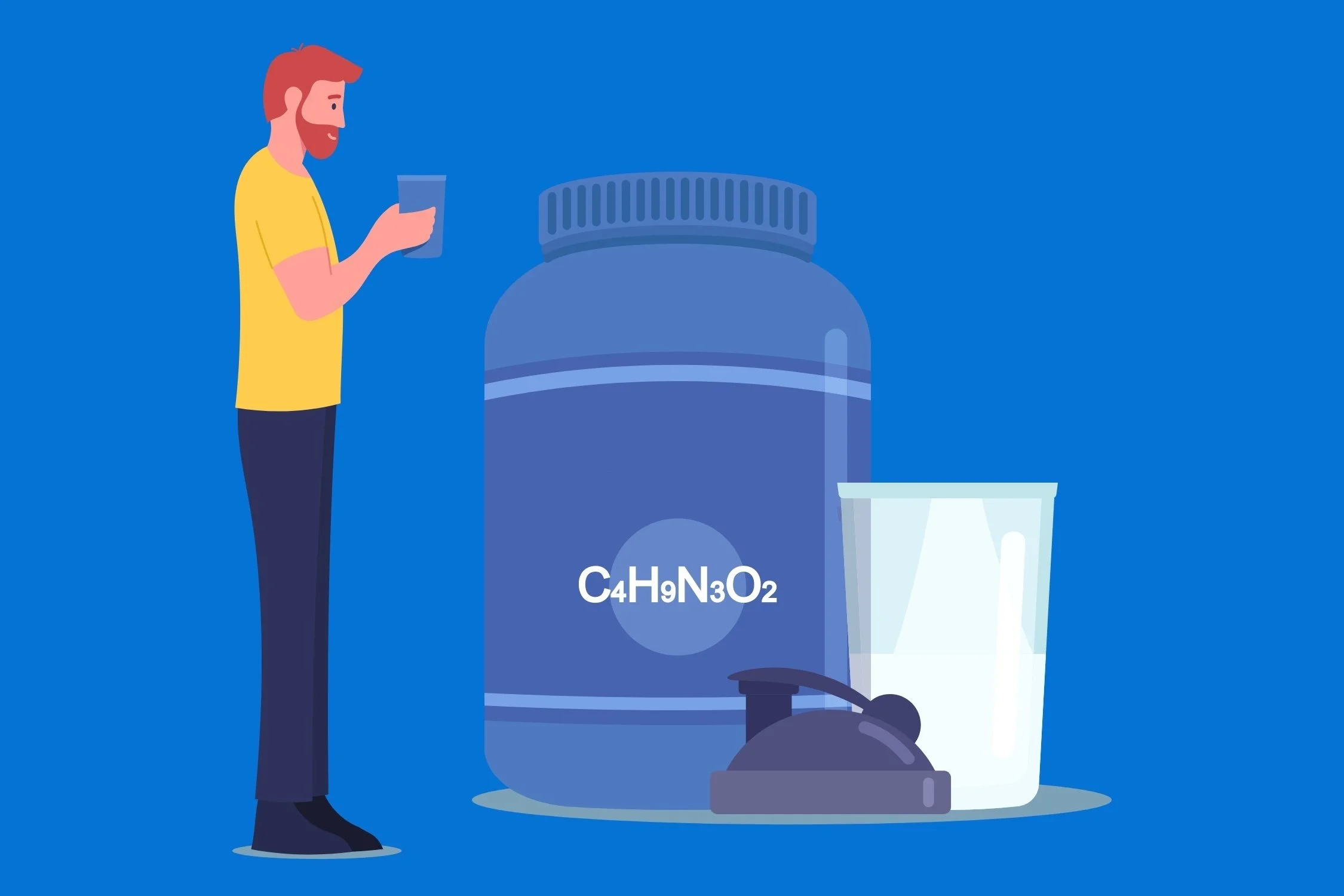Creatine
Creatine is one of the most researched supplements in the sports science world, with hundreds of studies over the decades investigating its safety and effectiveness. It’s a molecule that’s produced naturally in the body and also found in food like meat and fish – it’s nothing dodgy! Even though our body’s producing it and we’re getting it from our diet, the quantity isn’t high enough to obtain the full muscle-building and performance benefits.
Prefer to watch than read? Then please check out the video below:
Why supplement with creatine?
This is where supplementation comes in! The purpose of creatine supplementation is to increase your body’s creatine phosphate stores. Creatine phosphate is required to produce ATP (energy) during high-intensity training, such as lifting weights or when you’re late for the bus and have to give it legs!
Increased creatine phosphate stores equals more energy availability – meaning we can train harder and for longer and ultimately produce a greater hypertrophic (muscle building) response!
Creatine causing weight gain
One caveat is that creatine can initially cause some slight weight gain due to water retention. But this isn’t a bad thing, as it’s intramuscular water retention! Creatine draws water into our muscles’ cells. Not under the skin or anywhere else – just directly into the muscles. Giving the muscles a fuller, tighter appearance, not a soft, fluffy, or bloated one, which is what people think when they hear water retention.
What type of creatine should you take?
The type of creatine supplement I recommend is good old-fashioned creatine monohydrate – this has by far the most scientific backing and is super cheap!
How much creatine should you take?
I’d recommend 3-5 grams (0.03 grams per kg of body weight) per day to effectively saturate muscle creatine stores. Research suggests that there might be some advantage to taking creatine post-workout, but really, you can take it any time of the day. And yes, you can take it on training days and non-training days, as this will saturate muscle creatine stores the quickest.
Summary
In short, creatine is a very well-researched and effective supplement!
But as awesome as creatine is, no supplement is NEEDED to make gains. Focusing on the foundations, such as nutrition, exercise, sleep and hydration, should always be the priority – supplementation comes after the foundations are in place. But once the foundations are in place, supplementation, especially creatine, can really help take things to the next level!


